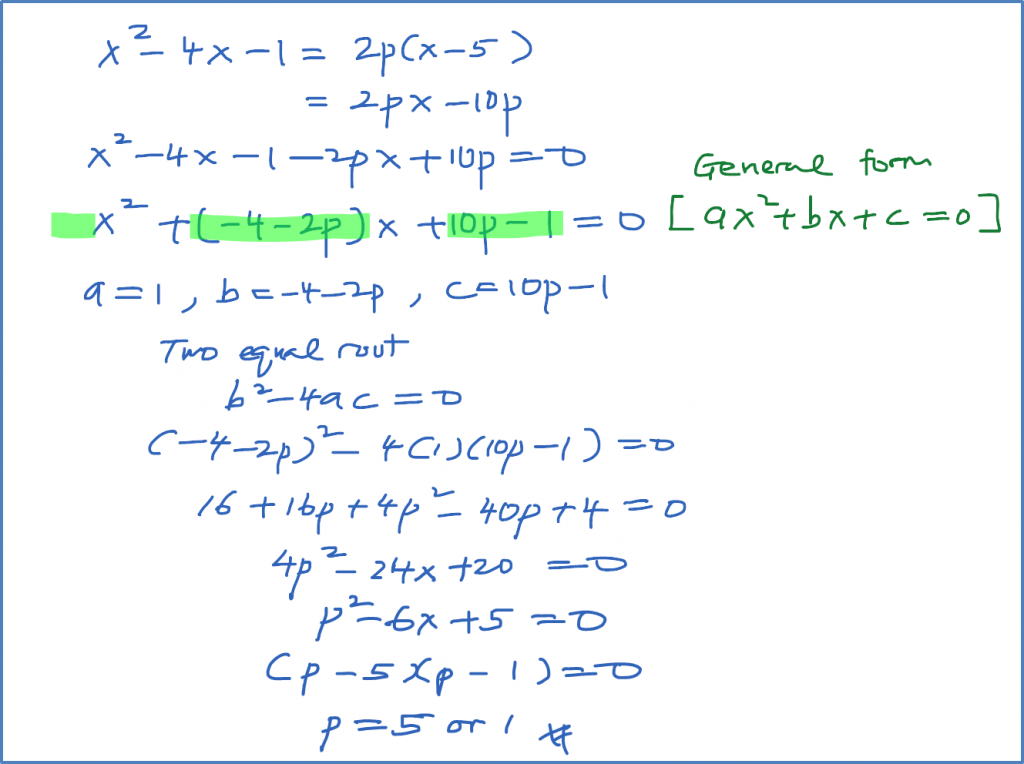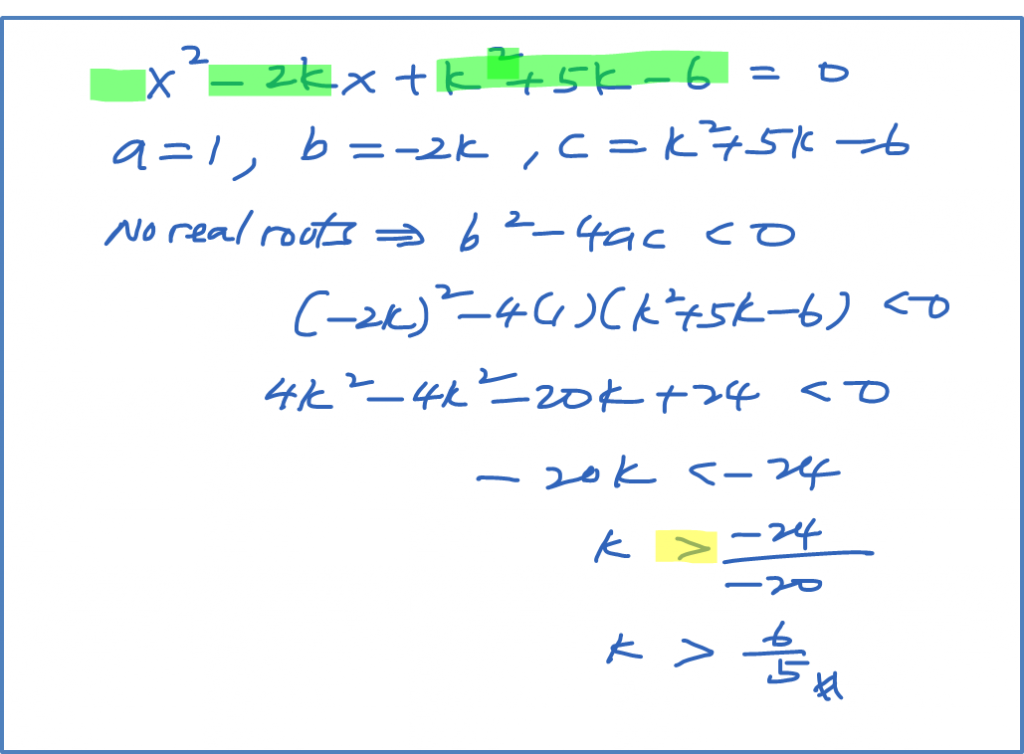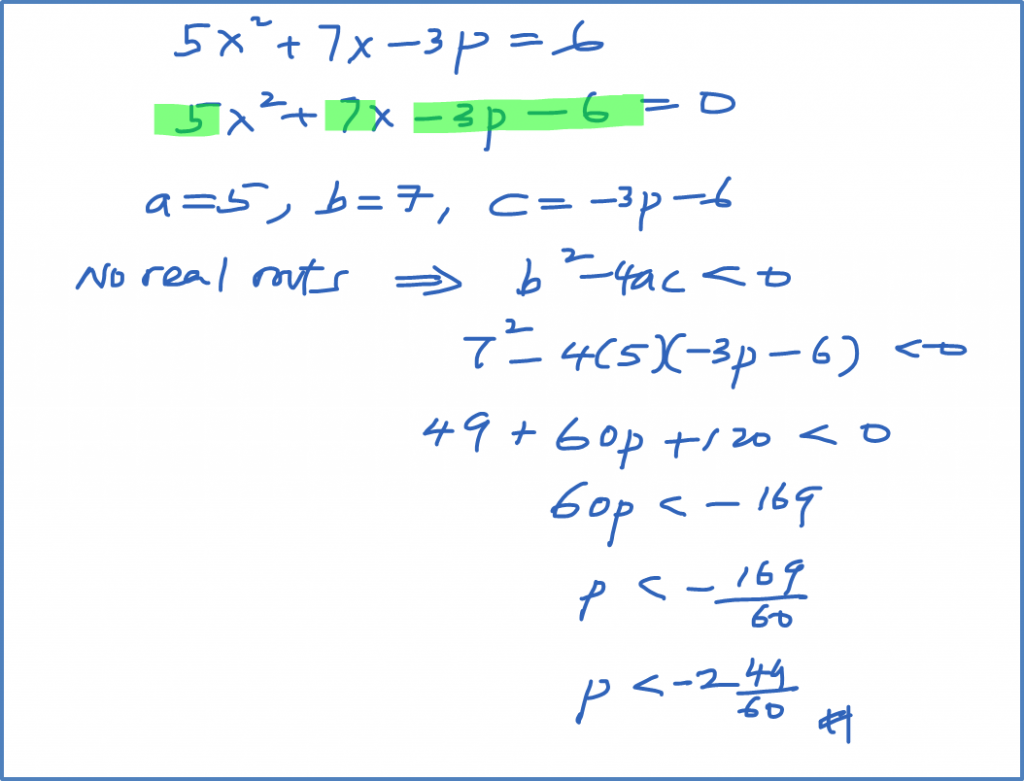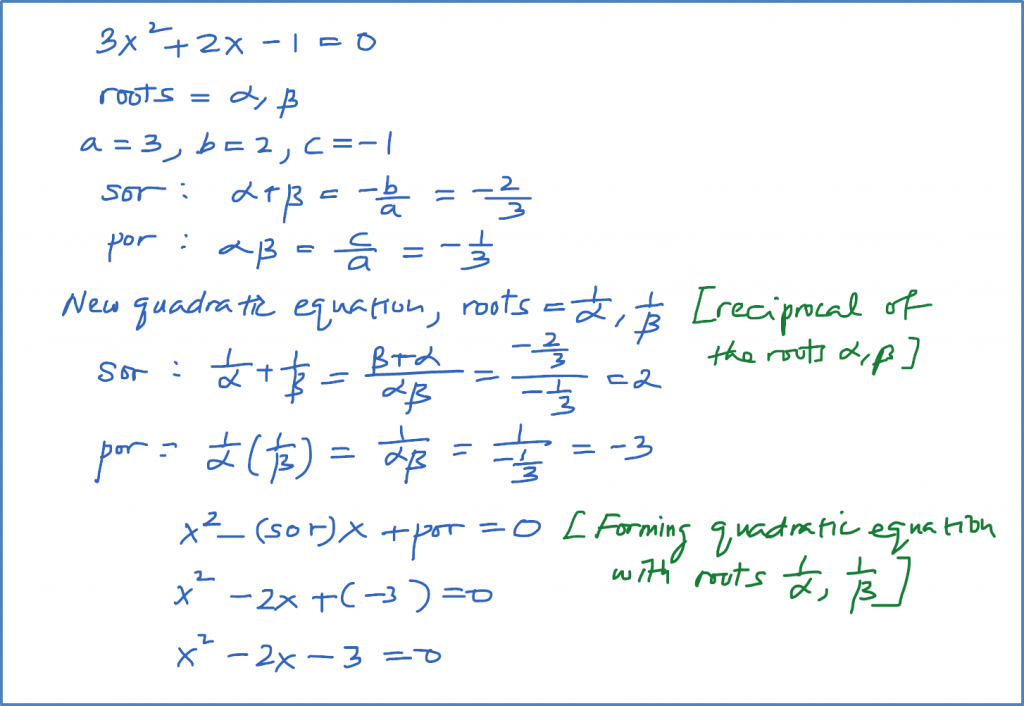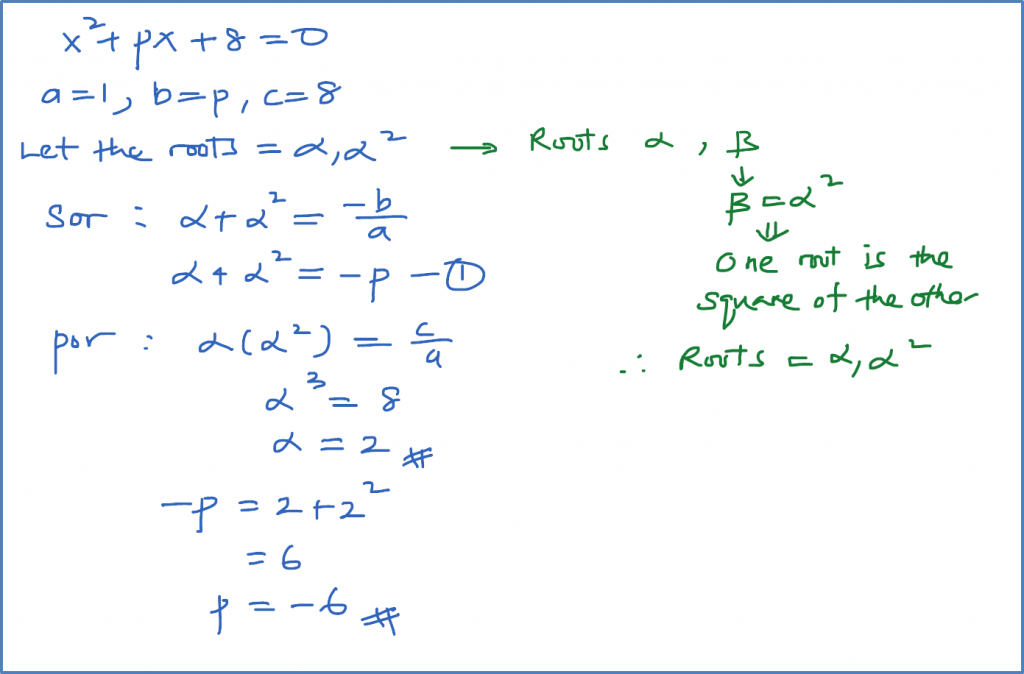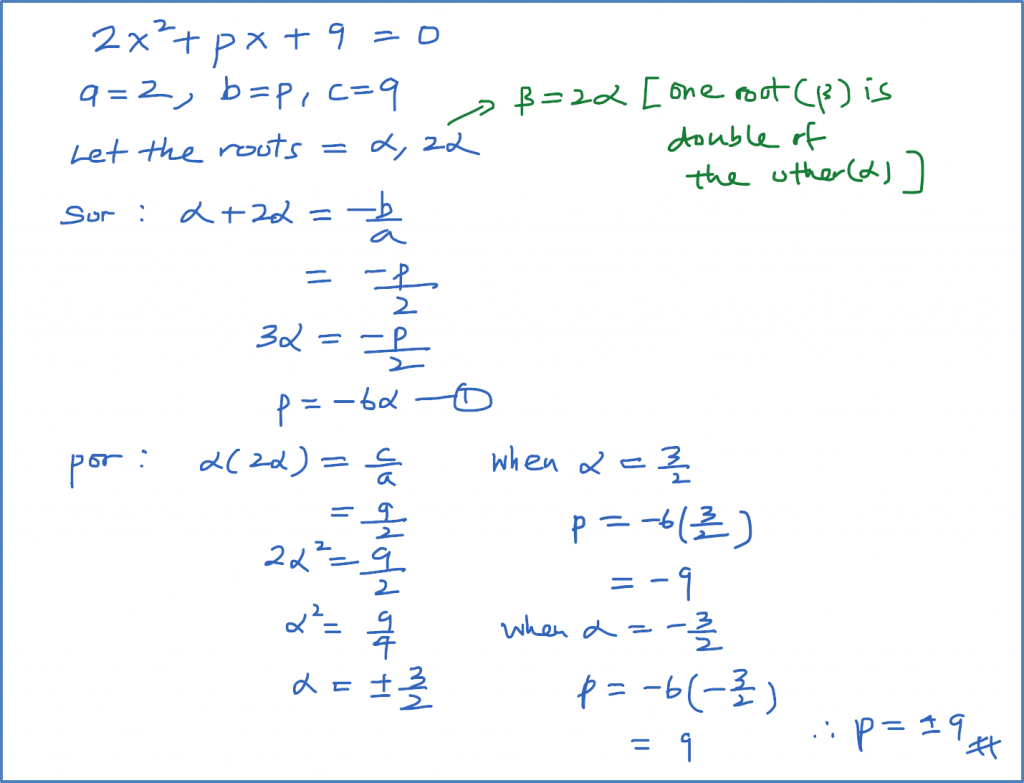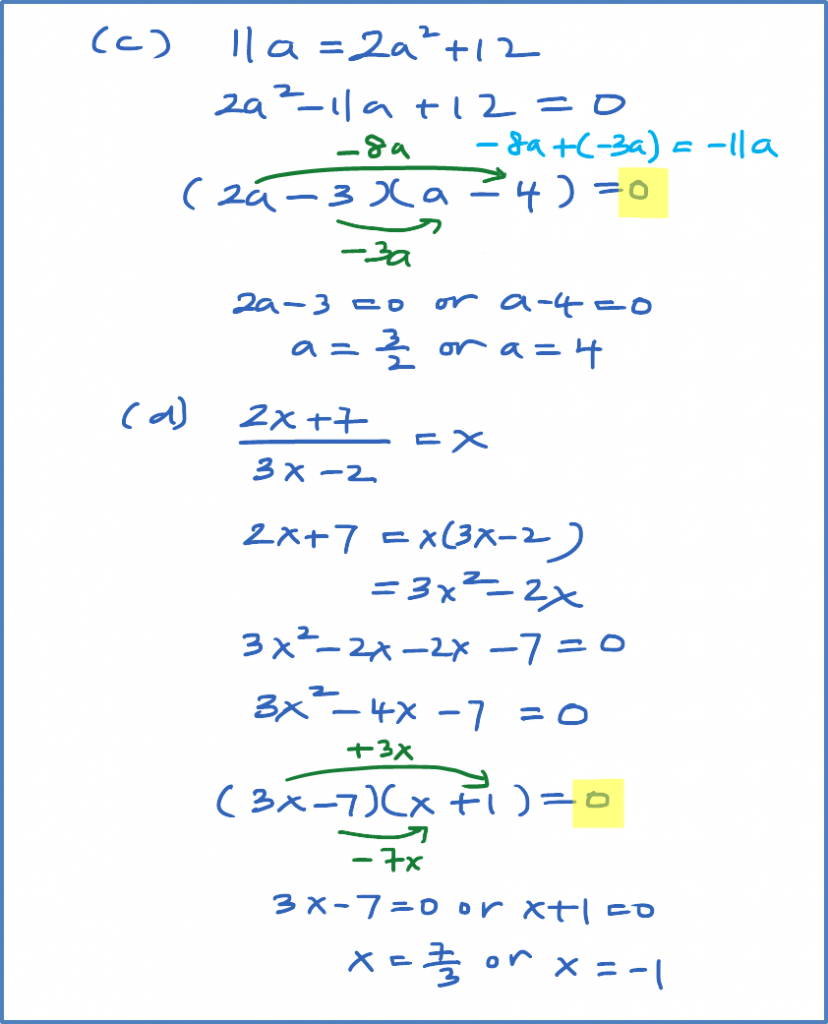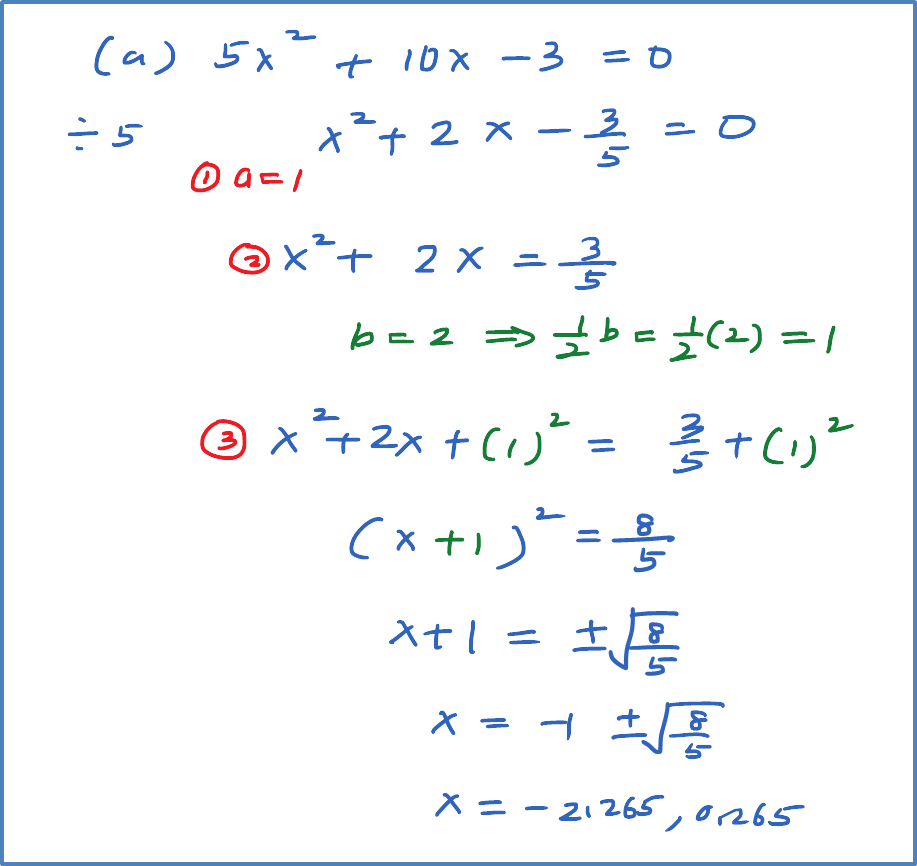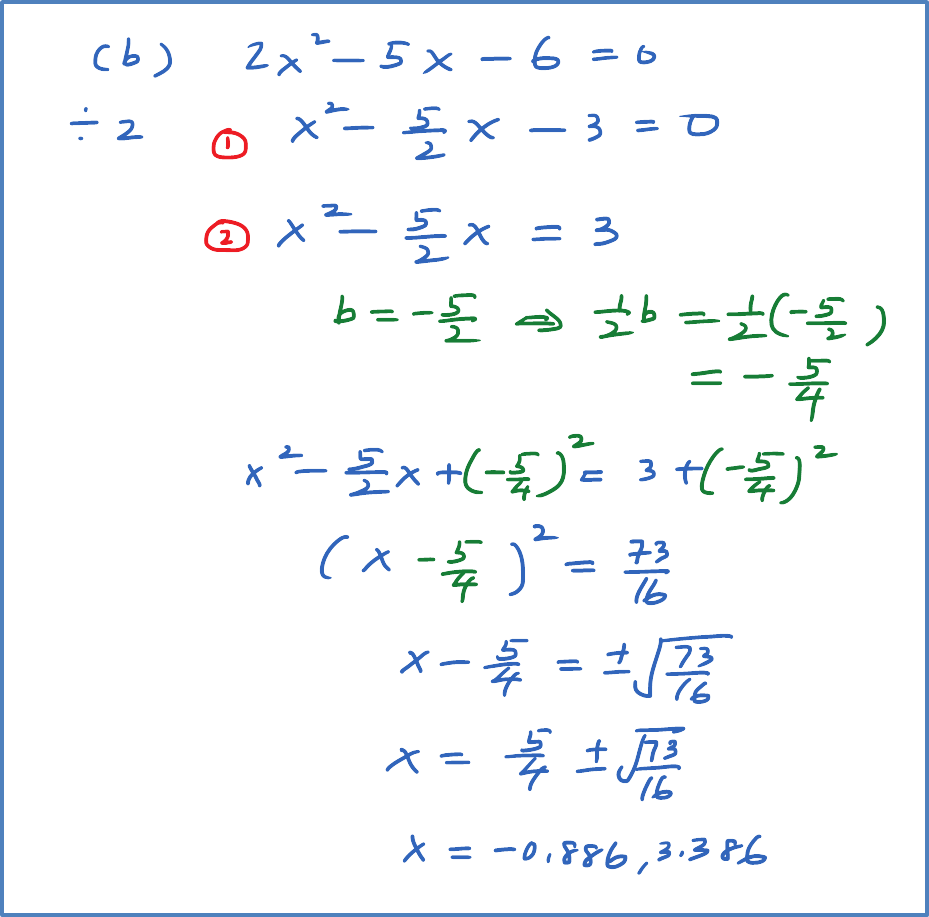Roots of Quadratic Equations
Roots of a quadratic equation are the values of variables/unknowns that satisfy the equation.Example:
Determine whether 1, 2, and 3 are the roots of the quadratic equation .
Answer:
When x = 1,
x = 1 does not satisfy the equation
When x = 2,
x = 2 satisfies the equation.
When x = 3
x = 3 satisfies the equation.
Conclusion:
- 2 and 3 satisfy the equation , hence there are the roots of the equation.
- 1 does not satisfy the equation , hence it is NOT the root of the equation.
